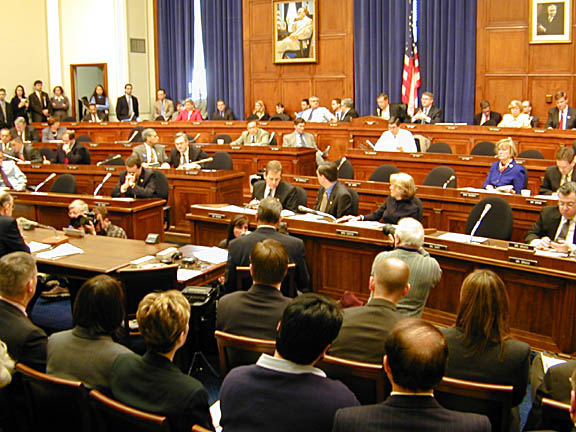The History of the United States Ethics Committee
March Issue

March 5, 2017
The U.S. House Committee on Ethics or OCE, which was created in 1967, is different than any other committee. The Committee includes five members of both political parties, which makes it the only current committee of the House whose membership is evenly divided between each political party. Also, unlike other committees, the work of the Committee on Ethics is performed by a staff that is unbiased.
The purposes of the The Committee are to administer financial disclosure, outside income, advise members and staff, issue opinions, and investigate potential ethics violations. Its four major functions have developed consistently over the years. There functions include: Members agree on what is ethical behavior when it comes to rules regarding treatment of staff, travel, campaign activities, and conflicts of interest. They conduct investigations if they believe a member has violated the rules set in place and make recommendations to the House on actions they believe should be taken if they decide ethics violations have occurred.
According to the Ethics Committee website, the committee has a long history; the first case it had was on January 30, 1798, when Rep. Matthew Lyon of Vermont was accused of “gross indecency” after he spat on Rep. Roger Griswold of Connecticut after a fight between the two. Another case that they had was on November 16, 2010, Charles Range of New York was found guilty for solicitation of funds and donations for the non-profit Rangel Center, the improper use of Congressional letterhead and other House resources in solicitations; for submitting incomplete and inaccurate financial disclosures, for using an apartment as an office and for failing to pay taxes on a villa in the Dominican.
Recently, the Committee on Ethics has been in the news because Republicans in the US House of Representatives have backed a proposal to take ethics oversight away from an independent group and give the authority to the legislators themselves. This caused public outcry for the maintaining of of an independent Ethics Committee and the oversight it stands for. The proposal by Republican Congressman Bob Goodlatte of Virginia to gut the independent Office of Congressional Ethics was approved 119-74.
In response to this comment, Izze Rios ’18, co-clerk of Wilmington Friends Ethics bowl team, commented, “I believe that we need an unbiased party that will decide on appropriate options of punishments when anybody does something unethical.”
Rios’s statement was reflected in the Al Jazeera post which shared a quote by Nancy Pelosi, the House minority leader, when she voiced dismay: “Republicans claim they want to ‘drain the swamp,’ but the night before the new Congress gets sworn in, the House GOP has eliminated the only independent ethics oversight of their actions. Evidently, ethics are the first casualty of the new Republican Congress, the amendment Republicans approved tonight would functionally destroy this office.”
This statement echoed the sentiments of many following the release of these actions in the news. An anonymous student said, “It astounds me that people can be okay with the fact that they are willing to get rid of the Ethics office. This is a separate office that judges if a House member has done something unethical. They are unbiased group with no connections to either side.” The Ethics office has been criticized by many Congress members of both parties, including those it has investigated and Republicans have long been opposed to its existence.
However, less than 24 hours after the measure was proposed, it was reversed. Donald Trump weighed in on the proposal through twitter and remarked that he thought priorities should be elsewhere. However, this incident has caused controversy over whether our government needs accountability to an independent force, or whether handing oversight power to the legislators would be more efficient.






























